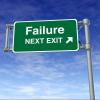Related Content
 |
Keeping Your Software Testing Abilities Relevant Today, Tomorrow, and Beyond Development and product teams have embraced agile and DevOps. What can testers do to keep up with their development peers? Here are some ideas about what testers can learn, what skills we can add, and what processes we can start doing in order to continue delivering quality today, tomorrow, and further into the future. |
|
 |
Thinking of Changing Jobs? Consider These Points First There are certainly valid reasons to look for a new job. In fact, it may be that you can achieve some of your career goals only by switching jobs. But in considering the right and wrong reasons for changing jobs, it’s important not to see the current job as no good and some unknown future job as the “perfect solution.” |
|
 |
How to Earn Trust in the Workplace If you’re starting a new position, taking over a team, transferring to a new department, or simply doing your job every day, you can accomplish more and accomplish it faster if people trust you. There are several outside factors that influence whether people find you trustworthy, but here are some you can control. |
|
 |
What’s Your “Size” of Agile? There are approaches to agile that sound great on paper, but will they really be the best choice for your team in practice? Instead of standardizing on any form of agile, think about the results you want. Why not create the environment that works best for you? There's more than one way to do agile. |
|
 |
Managing the Turbulence of Organizational Change In times of major change, particularly organizational change, it's normal for people involved to experience turbulence, including anxiety, anger, or uncertainty. If you’re overseeing a change, how you communicate with those affected can significantly decrease—or increase—the duration and intensity of that turbulence. |
|
 |
In Praise of Failure Failure is measured by expectations. If we aim to be perfect, or set the expectation that only perfection is acceptable, we risk losing opportunities to get valuable feedback. Creating an expectation of perfection can lead to stagnation, not success. Instead, view failure as a learning experience. |
|
 |
Manage Project Problems without Getting Trapped by Catastrophic Thinking It would be short-sighted for any project manager not to consider the potential risks in the project and not to evaluate and continue re-evaluating what can go wrong. But there's a difference between planning for risk and falling victim to catastrophic thinking—focusing on unlikely or irrational worst-case scenarios. |
|
 |
Training and Tomorrow’s Jobs Reports vary in predictions about what parts of the workforce will be most affected by automation. How far-fetched is the idea that significant numbers of technology jobs will become irrelevant? How can training and education programs better prepare us for the future? |





